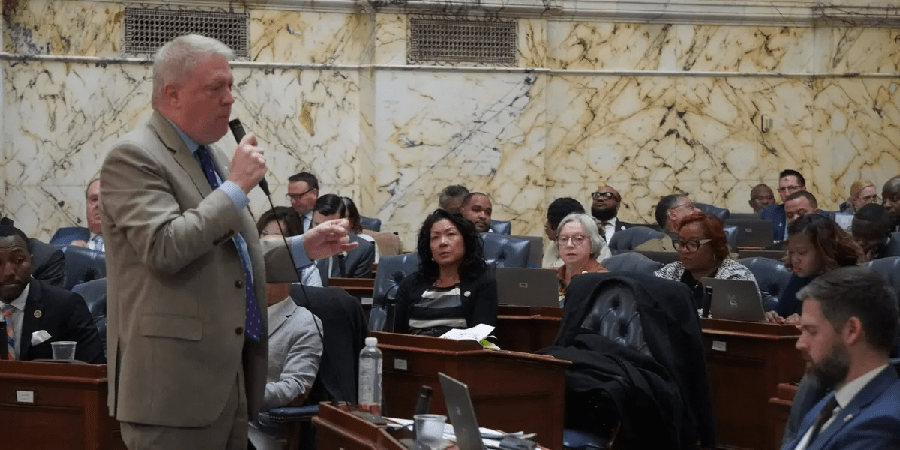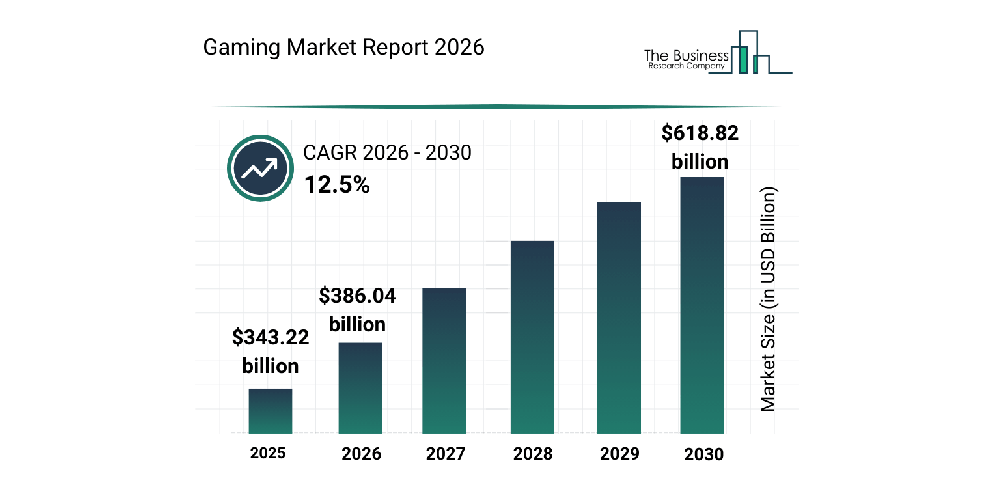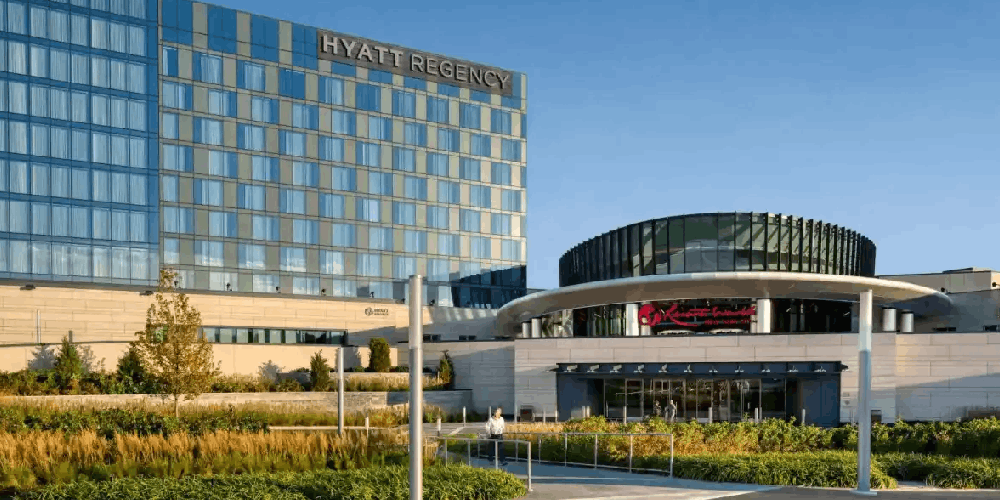In the Maryland House committee, there will be no vote on barring sweeps or on HHR.
When the two gambling legislation were being discussed by the Maryland legislature, politicians listened to lengthy testimony and asked questions that were equally as comprehensive. However, neither of the bills was brought up for a vote in committee.
betfred departure from the inner harbour of Baltimore
Following a two-part hearing that took place on Tuesday (11 March) in the House Ways and Means Committee, there was no progress made on a bill that would prohibit sweepstakes and another that would let historical horse racing machines to be installed at Maryland off-track betting establishments.
As of late Tuesday night, neither bill was on the agenda for the committee's scheduled vote session that was due to take place on Wednesday morning. There has been no gaming expansion bill that has been passed by the Maryland legislature during this session. There has been no movement of a measure to legalise internet casinos by committees in either the House or the Senate as of yet. Stakeholders and legislators are at odds with one another about whether or not to legalise, which has resulted in a standstill.
But on March 7, a Senate committee did move forward with Senate Bill 860, which would prohibit sites that host prizes. For the time being, the platforms are not subject to any regulations, and the businesses that operate them do not pay any taxes to the state. Casino operators argue that they ought to be subject to prohibition.
Sweepstakes are similar to promotions that McDonald's uses.
During their testimony, supporters of sweepstakes emphasised that their platforms are already theoretically lawful in the state. They continued by stating that House Bill 1140, which proposes to prohibit them, would also specifically prohibit internet casinos and could have implications that were not intended during the process.
During his testimony on behalf of VGW, an Australian-based sweepstakes operator, Josh White of KO Public Affairs stated that the games are "just like Candy Crush," which is a well-known online tile game. Both the game and the sweepstakes websites are "always free to play," but users have the option to purchase "game tokens" in order to improve their experience further. As a method of marketing, he proposed that VGW employs promotions in the form of sweepstakes, "in the same way that McDonald's or Microsoft does."
However, Brad Rifkin, who was testifying on behalf of Light and Wonder, stated that "if it walks like a duck and quacks like a duck, then it is a duck." It's in violation of the law."
As of Rifkin's estimation, the illegal market in Maryland is worth six billion dollars. This most certainly includes games that are not regulated, such as sweepstakes, as well as internet casinos and sportsbooks that come from offshore locations.
Is the language of the sweeps-ban law too broad?
Attorney Jeff Ifrah, who was testifying on behalf of the Social and Promotional Gaming Association, provided the most interesting testimony. Among the team members are companies such as Fliff, Gold Coin Group, and Woopla Gaming. As a trade group based in the United States, the SPGA does not include enterprises such as VGW or offshore operators as members.
Ifrah stated that sweepstakes games are allowed in Maryland since they are governed by the Maryland business code 13-305.
After that, he went on to argue that the language in Senate Bill 860 is so widespread that if it were to become law, it would expressly prohibit online casinos, yet at the same time "the black market would remain illegal." In his statement, he stated that the bill would "do away with something that is already legal" and that it is unneeded.
Ifrah spent a great amount of time discussing present legislation, the platforms of his clients, and how SB 860 may ultimately mean that non-gambling corporations like McDonald's or Starbucks would be required to withdraw their sweepstakes programs. The argument grabbed the interest of lawmakers, and Ifrah spent extensive time describing the current law.
Jason Buckle, a delegate, made an attempt to make sense of the situation by stating, "We need to ban companies that are offering pure online gaming, not games that are tied to regular, legal consumer activities." Could we accomplish that?
OTBs require an additional financial source.
The second gambling bill that was examined was House Bill 1048, which would permit the installation of HHR machines at five off-track betting establishments located around the state. In their testimony, officials from MGM and Penn Entertainment's Hollywood brand expressed their opposition to the plan. The main casino firms are against it. But the OTBs assert that possessing the machines is absolutely necessary for their continued existence.
The proprietor of Long Shot's OTB in Frederick, Alyse Cohen, testified that the company's goal is to "succeed rather than merely survive." She stated that the handle has decreased by 33 percent after the introduction of online sports betting in Maryland in November of 2022. Around a year earlier, in December 2021, betting in person became available to the public.
Cohen stated that there was a time when we had high hopes that retail sports betting would ultimately deliver a much-needed boost to sales. Instead, we have witnessed the entire process of wagering on sports being moved online.
It is estimated that 95% or more of handle is generated online rather than at retail sportsbooks in states around the country that have implemented digital sports betting.
As a representative of Chesapeake Gaming Group, Leslie Feliz, who works for the Greenville Consulting Group, provided testimony. She repeated Cohen's line of reasoning.
She stated, "When we first started out with retail sportsbooks, we believed that there would be a profit that could be maintained over time." "The fact of the matter is that it is not meeting expectations, and combined with the fact that online sports betting has made it extremely challenging for Chesapeake Gaming to even find a retail partner,"
During the process of legalising sports betting in Maryland, the legislature incorporated a comprehensive clause that protected minority and small-business interests. The principle behind this is that smaller businesses and those owned by members of under-represented groups would be given the opportunity to take part. But the rise of online wagering has brought more customers to the internet. It has been stated by the OTBs, which are all smaller enterprises compared to the casinos, that the change has been detrimental to them. Some of the OTBs are owned by members of minority groups.
Casinos: "The experience of the player is no different"
The casino firms in Maryland are opposed to the addition of HHR machines at the OTBs because they believe the machines are similar to the slot machines they already have. They further point out that the planned tax rate for HHR, which is 15%, is significantly lower than what they pay. Despite the fact that the tax rate on slot machines in Maryland varies from casino to casino, the American Gaming Association reports that the majority of casinos pay more than forty percent.
A number of stakeholders contend that human resource management (HHR) machines are games of skill rather than games of chance. They seem to imply that the most essential thing is the internal workings of the devices. According to one individual, "the bells and whistles are irrelevant."
However, Marta Harding, speaking on behalf of MGM, which operates a land-based casino in Baltimore, stated that the difference in the way the machines operate is inconsequential when it comes to the bottom line.
With regard to the operation of HHR equipment, she stated that this is not the problem at all. The problem is the player experience, and the player experience is the same as it is on classic slot machines, according to the statement.
In response to the question, she stated, "We do not believe that it is a good approach to create another competitive force against Maryland's casinos." We have a very successful partnership with the state, and we just do not believe that any threat to that model, which has brought a great deal of money to the education trust fund, is warranted at this time.








